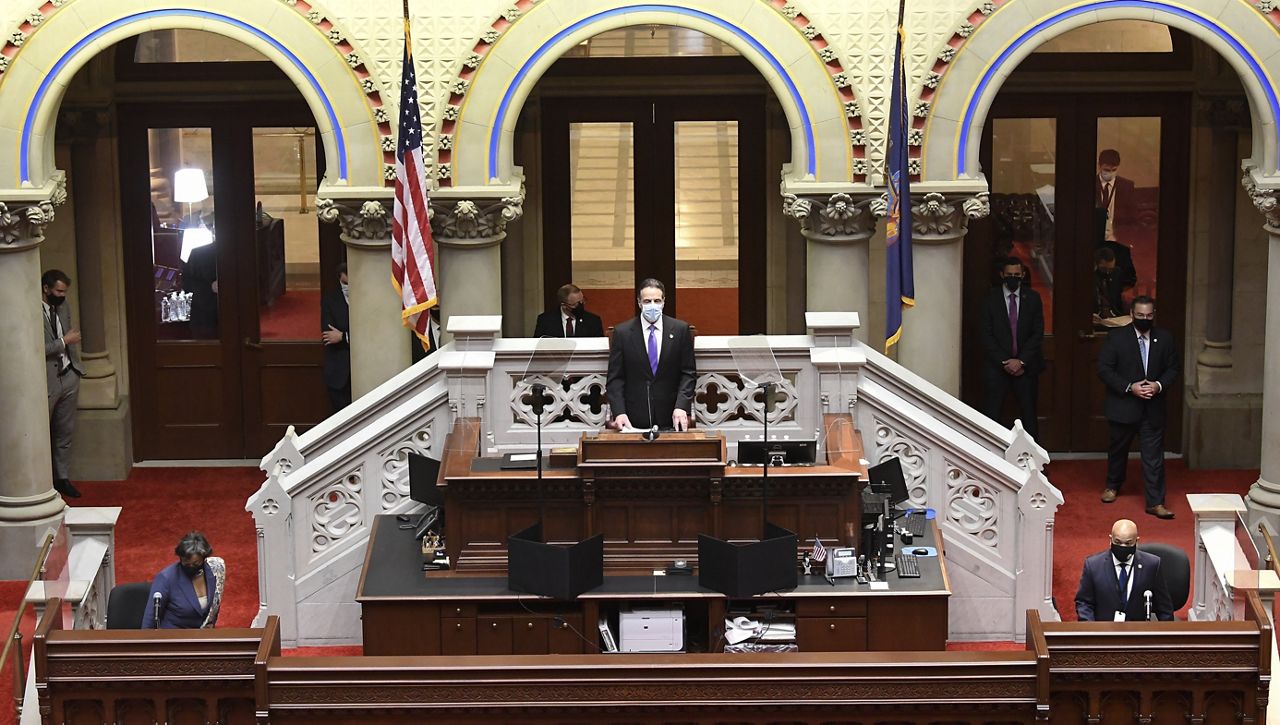For years, Gov. Andrew Cuomo's influence in the state Legislature loomed large over both chambers. The office of the governor of New York is an inherently powerful one, especially when it comes to budget making, and Cuomo is more adept than his recent predecessors in using the right levers to get what he wanted.
Only now it's increasingly harder for him to get what he wants in Albany, as a series of flashpoints over the controversy surrounding his handling of nursing homes during the COVID-19 pandemic could have the consequence of reducing his power to issue orders responding to the crisis.
Lawmakers received another shove toward scaling back his power on Wednesday. Assemblyman Ron Kim said in interviews he was threatened by Cuomo after he criticized the governor following the leaked details of a Zoom meeting, in which the governor's top aide acknowledged the state withheld nursing home data amid concerns it could be weaponized by the Trump administration.
The state Senate plans to vote on a measure reducing his authority and setting up a commission to review subsequent orders. It's not yet clear if the state Assembly will act.
But the ongoing saga highlights the rapidly deteriorating relationship between the governor and the Legislature, where his own party controls both chambers with a supermajority that has the power to override his vetoes.
The seeds of the discontent between Cuomo and Democratic lawmakers had been planted for years. Progressives had for years pushed Cuomo to aid his party's takeover in the state Senate; Cuomo acknowledged to Republicans privately once he could have worked harder, but did not.
Meanwhile, a new crop of lawmakers have been elected in recent years more willing to challenge the governor, a popular notion for progressive primary voters.
The Republicans of the governor's first term who were willing to do business with him, were willing to strike deals based on mutual benefit, are no longer in office, nor are they in power.
Cuomo, for his part, has exhibited some of his constructive impatience with the Legislature, arguing it is not a "debating society" when lawmakers receive bills still warm from the printer to vote on in the early hours of the morning.
Though Democrats accused Cuomo of wanting Republicans in charge of the Senate, he was able to use a weakened Republican majority in that chamber to his advantage.
With Donald Trump in the White House and Democrats holding power in the state Senate for the first time in 10 years, the Legislature in 2019 began to reassert itself, but much of the focus remained on counteracting the federal government. Cuomo, who ran for re-election in part pledging to be an effective foil to Trump, took up a similar posture.
Still, the sharp elbows of New York politics remained.
At its best, this style can reap legislative successes for the governor: Cuomo in his first year won passage of a measure legalizing same-sex marriage through a mix of deal-making and arm-twisting. The measure went on to become a national catalyst for equality, making a difference in peoples' lives.
On the opposite end is the Kim episode. Such a phone call from Cuomo for longtime Albany hands is not unusual. But after 11 months of the national spotlight being shone on the governor, and after weeks of tough headlines surrounding nursing homes, the episode could be a tipping point.
Cuomo's office in a statement called Kim a liar, and released a portion of the DeRosa meeting in which Kim lists his concerns, which the governor's team sought to contrast to the harsher statements he gave to the New York Post.
And amid the fighting, there's still a pandemic raging across the country and New York.
A post-holiday surge has ended, but there have been dozens of confirmed cases of variants that are considered more contagious. The economy is still facing a long road to being rebuilt. New Yorkers are struggling to make vaccine appointments amid a limited supply of doses. Parents are wondering how much longer than can keep their kids at home and not in a physical school building.
“Now more than ever everyone involved needs to lower the temperature and work together to move this state forward and get past this pandemic," said Assembly Speaker Carl Heastie. "That should be our focus.”


